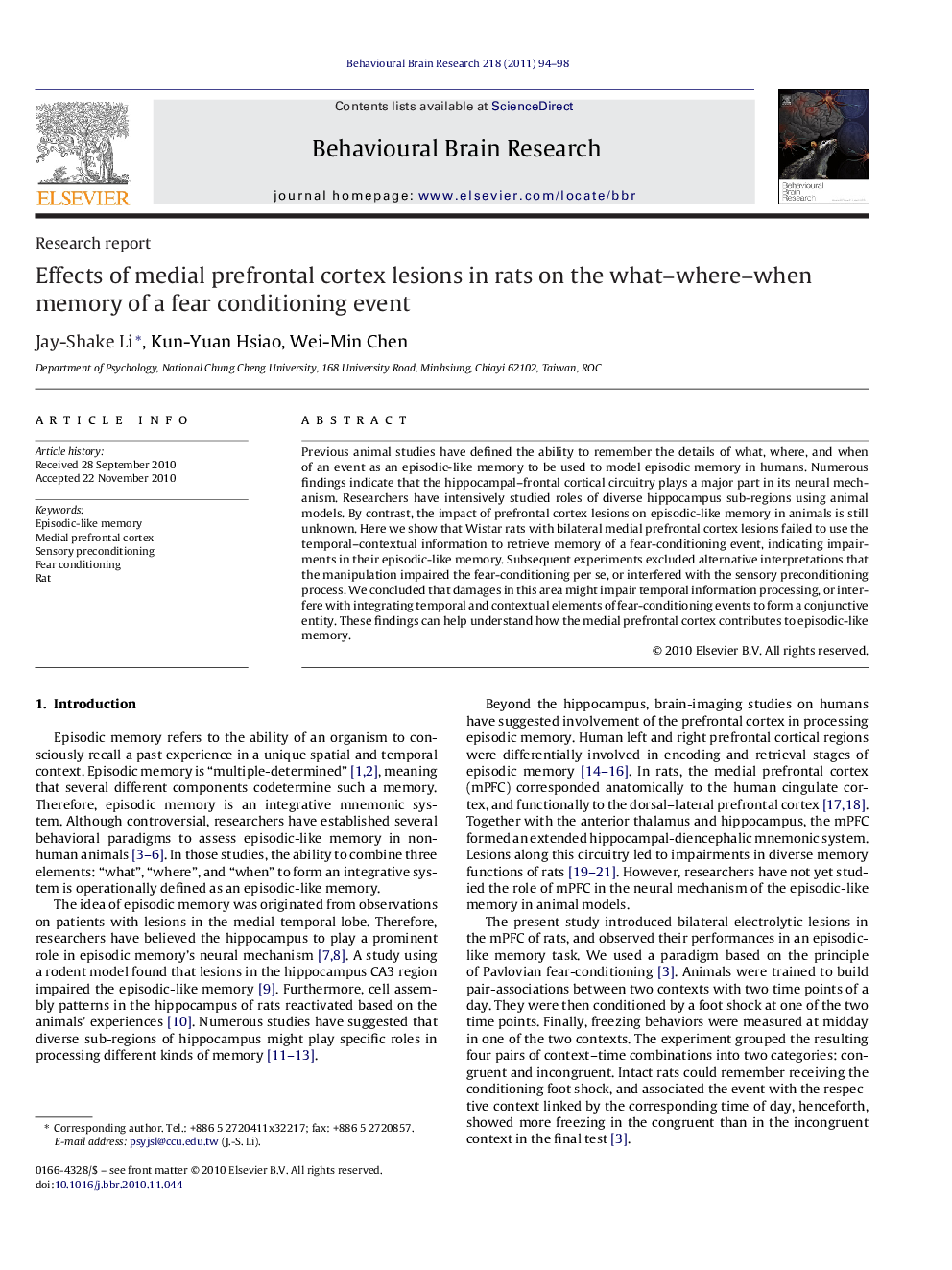| Article ID | Journal | Published Year | Pages | File Type |
|---|---|---|---|---|
| 6259896 | Behavioural Brain Research | 2011 | 5 Pages |
Previous animal studies have defined the ability to remember the details of what, where, and when of an event as an episodic-like memory to be used to model episodic memory in humans. Numerous findings indicate that the hippocampal-frontal cortical circuitry plays a major part in its neural mechanism. Researchers have intensively studied roles of diverse hippocampus sub-regions using animal models. By contrast, the impact of prefrontal cortex lesions on episodic-like memory in animals is still unknown. Here we show that Wistar rats with bilateral medial prefrontal cortex lesions failed to use the temporal-contextual information to retrieve memory of a fear-conditioning event, indicating impairments in their episodic-like memory. Subsequent experiments excluded alternative interpretations that the manipulation impaired the fear-conditioning per se, or interfered with the sensory preconditioning process. We concluded that damages in this area might impair temporal information processing, or interfere with integrating temporal and contextual elements of fear-conditioning events to form a conjunctive entity. These findings can help understand how the medial prefrontal cortex contributes to episodic-like memory.
Research highlightsⶠThe mPFC lesion impairs episodic-like memory in rats. ⶠDamages in the mPFC does not influence fear conditioning. ⶠNor does the mPFC lesion interfere with the sensory preconditioning.
